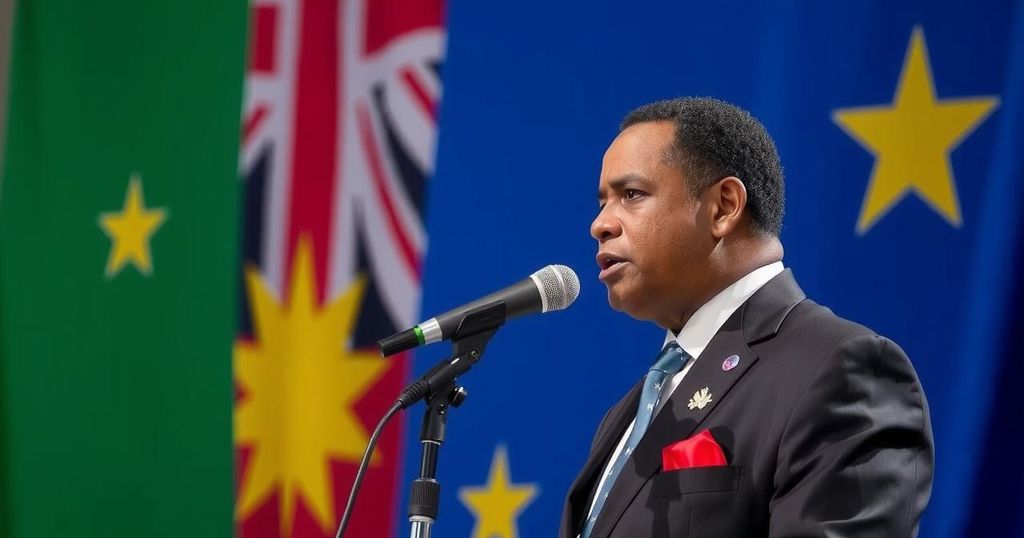Prime Minister Pravind Jugnauth of Mauritius conceded defeat in the recent elections, signaling a potential victory for opposition leader Navin Ramgoolam. Despite challenges during the campaign, including a wire-tapping scandal, voter turnout was strong at 80 percent. Ramgoolam, if confirmed as prime minister, will lead his coalition amid ongoing concerns about economic issues and governance.
In a significant political shift in Mauritius, Prime Minister Pravind Jugnauth conceded defeat in the recent legislative elections, indicating a likely victory for opposition leader Navin Ramgoolam and his Alliance of Change coalition. Despite the absence of final results, Jugnauth acknowledged the decision of the electorate, stating, “The people have chosen another team to lead the country,” and expressed his good wishes for the incoming administration. The elections followed a campaign marred by a wire-tapping scandal while promising reforms to alleviate the cost-of-living issues faced by Mauritians. Historic voter turnout was reported at around 80 percent, highlighting the public’s investment in the electoral process.
Mauritius, known for its relative political stability and economic prosperity in the African region, is undergoing a crucial electoral transition. This electoral cycle followed significant recent developments, notably a sovereignty agreement with Britain over the Chagos Islands. However, it was overshadowed by political controversies, including allegations of corruption and governmental mismanagement. Both leading political figures, Jugnauth and Ramgoolam, belong to prominent dynasties that have significantly influenced Mauritian politics since its independence in 1968. As such, the political landscape remains deeply rooted in historical legacies, making electoral outcomes particularly pivotal for governance.
The electoral defeat of Prime Minister Pravind Jugnauth marks a critical juncture in Mauritian politics, as it paves the way for Navin Ramgoolam’s potential return to power. The elections stood as a referendum on governance issues and economic challenges facing the populace. Moving forward, the new administration will face the challenge of addressing these concerns while also fulfilling the electoral mandate that reflects the will of the Mauritian people. This transition signifies an anticipated change in leadership amid ongoing discussions surrounding governance and public accountability.
Original Source: www.seychellesnewsagency.com






